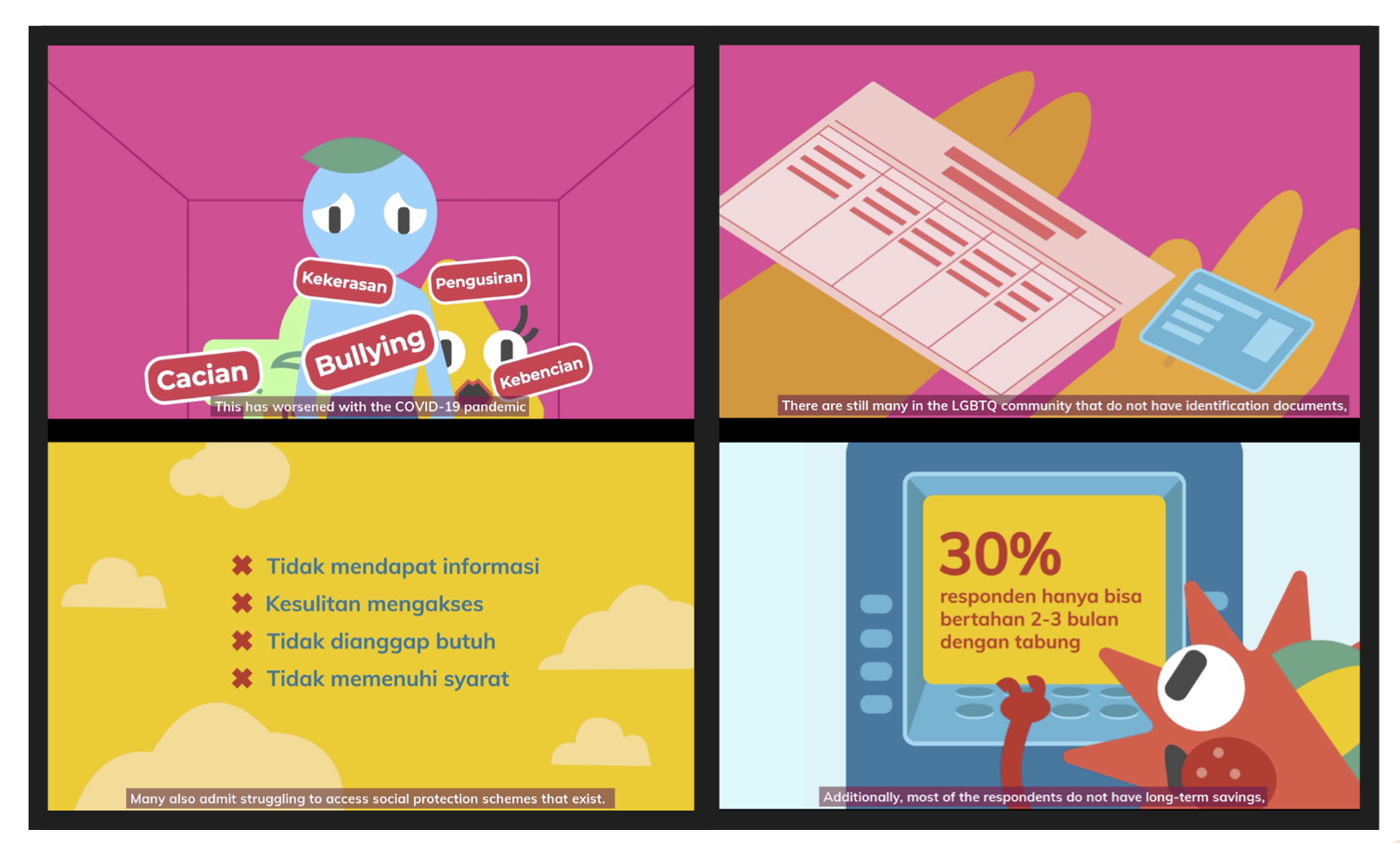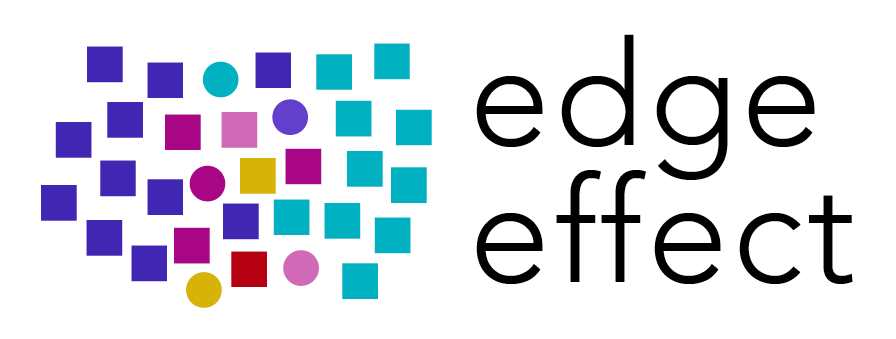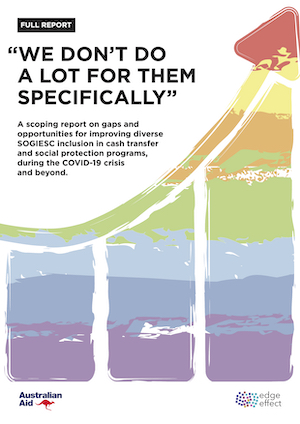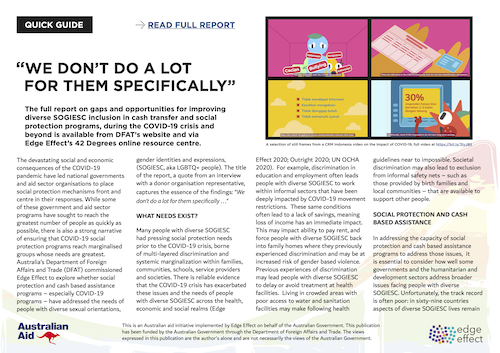Is COVID-19 cash based assistance reaching people with diverse SOGIESC?

Geography
Global, Bangladesh, Fiji, Indonesia
Status
Report Published Ausust 2021
Partners
Bandhu Social Welfare Society, Rainbow Pride Foundation, CRM Indonesia, DFAT.
Summary
The devastating social and economic consequences of the COVID-19 pandemic have led national governments and aid sector organisations to place social protection mechanisms front and centre in their responses. While some of these government and aid sector programs have sought to reach the greatest number of people as quickly as possible, there is also a strong narrative of ensuring that COVID-19 social protection programs reach marginalised groups whose needs are greatest. Australia’s Department of Foreign Affairs and Trade (DFAT) commissioned Edge Effect to explore whether social protection and cash based assistance programs – especially COVID-19 programs – have addressed the needs of people with diverse sexual orientations, gender identities and expressions, (SOGIESC, aka LGBTQ+ people). The title of the report, a quote from an interview with a donor organisation representative, captures the essence of the findings: “We don’t do a lot for them specifically …”
Many people with diverse SOGIESC had pressing social protection needs prior to the COVID-19 crisis, borne of multi-layered discrimination and systemic marginalization within families, communities, schools, service providers and societies. There is reliable evidence that the COVID-19 crisis has exacerbated these issues and the needs of people with diverse SOGIESC across the health, economic and social realms.
In addressing the capacity of social protection and cash based assistance programs to address those issues, it is essential to consider how well some governments and the humanitarian and development sectors address broader issues facing people with diverse SOGIESC. Unfortunately, the track record is often poor. More specifically, the overwhelming majority of social protection and cash-based assistance documents reviewed offer little or no substantive guidance on working with people with diverse SOGIESC. Similarly, most reports on the economic impact of COVID-19 have little or nothing to say on diversity of SOGIESC, even those focusing on gender or social inclusion.
This report includes case studies from Bangladesh, Fiji and Indonesia; a review of global policy and practice, discussion of key and emerging issues, and simple findings and recommendations.
.



Recent Comments